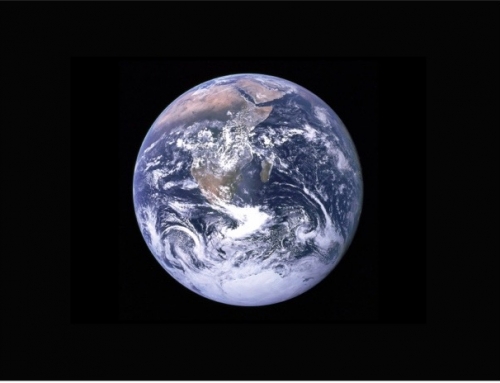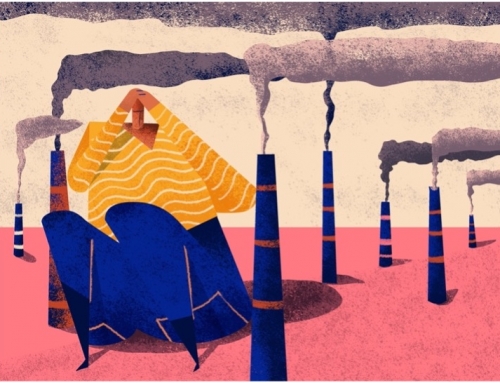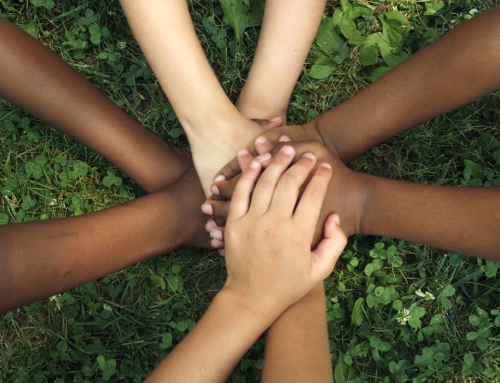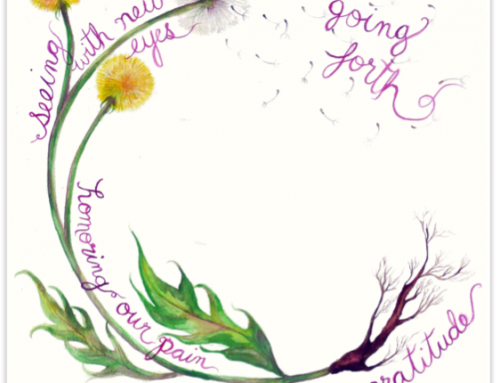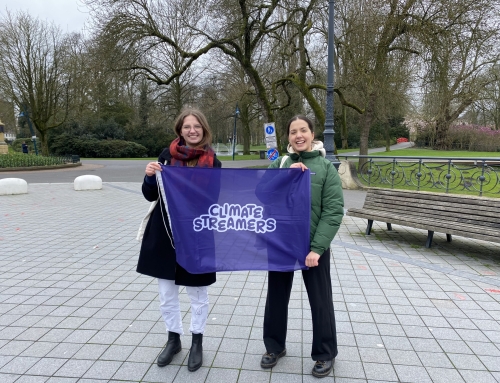We are in the middle of something that we have never experienced before. The corona crisis is new to all of us. This is definitely not the first crisis humanity experienced, think of the second world war in 1940 and the financial crisis in 2008. However, this is the first crisis that I am consciously experiencing. If you ask me, we do not even have to guess the ‘Dikke van Dale, woord van het jaar 2020’. In my surroundings, I noticed how people reacted to the crisis and this made me think. Crisis brings out the best ánd the worst in people (Segers, 2020). In my last blog, I talked about how our economy is organized and why this needs to change, in this blog I will discuss how people react to crisis’s that affect this economy. What will happen when suddenly, we run out of our resources in a far more rapid pace than we anticipated? What will happen if we underestimated our CO2 emissions and we literally cannot leave our houses because our fresh air turned into toxic gasses? How will humanity react then? Will it bring out the best, or the worst in us?
S.O.S.
The Corona crisis that we are facing right now does bring out the best and the worst in us. The worst, where people are fighting each other over the last roll of toilet paper in the grocery store. Or take the example in Breda, where students decided to host a house party with DJ, sound system and light show included, disregarding the government’s measures regarding the Coronavirus (AD, 2020). Last but not least, ‘hamsteren’: a true example where the Western human being has difficulty not to prevail its own interest (Redactie Joop – Derave, 2020). Purchasing as many pasta packages to ensure that yóu will never fall short. The best, where for every person fighting over toilet paper in the grocery store are a thousand doctors and nurses who work their hardest to help. For every ‘hamsteraar’ are ten thousand citizens who stay inside trying to contain the spreading of the virus (Bergman, 2020). What I see is that crisis bring people together, collectivism grows and we are more empathic than ever. There are countless citizen initiatives that arose as a result of the Coronavirus. For example, students helping younger students with providing information on HBO or university studies because due to Corona, open days are cancelled. Or people hanging a white t-shirt with a bright big red heart on it to show their support to the people who work in health departments or hospitals. The crisis causes people to reassess their priorities and think about what they truly care about.
SURVIVAL OF THE FITTEST
Looking at the pyramid of Maslow, in times of crisis, people will go back to focusing on the first tier, the physiological needs and on the second tier, health and safety. In this crisis, people are continuously checking if the food supply will be jeopardized, checking if they and their families are healthy and ensuring the safety of that family by keep 1,5 meters distance at all times. When these needs are met, people have an abundance of spare time and can, therefore, move up on the ladder. For example, people now suddenly have time to focus on self-actualizing: educating themselves, learning a new skill, reading a book and so on. Since people are forced to slow down, to stand still, they have time to spend time on things that they never had the time for.
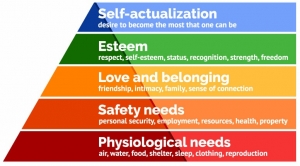
(Maslow, 1943)
Another interesting aspect is the third tier of the Maslow pyramid. This tier is about Love and Belonging. When I ask around: What do you miss most in these times? People mostly answer with: ‘seeing my friends, hugging my mom, visiting my grandma or going out with friends’. People miss the social contact, the connection with their fellow human beings. Why do we often take for granted the very things that deserve our gratitude the most? We do this with both people and possessions. The problem is many people do not realize this until the situation has come and passed. We take things for granted on a daily basis, always with the assumption that whenever we need something, it will be there (Fern, 2013). When people are forced to keep distance, we have to find alternatives to show that we love and that people belong. Corona caused people to look for alternatives: grandchildren are visiting their grandparents as a drive-through or they craft a banner that says ‘I love you grandma’. If plan A does not work, let’s switch to plan B! My point is, these times prove that if we are limited, we will find another way and that is great. However, this made me think: we are positive as human beings and this crisis proves that we unite when this is asked from us. However, what will happen if we are forced by planet earth to find another way?
TOO LITTLE TOO LATE?
As Fern says, we take things for granted, with the assumption that whenever we need something, it will be there, but what if our world is not going to be there? Is this uniting in times of crisis enough, when Mother Earth sets her boundaries? What will happen when we run out of our natural resources? Is humanity going to be capable enough to be creative and think of alternatives as we are doing now, or is that a different situation? I think that this phenomenon, people taking things for granted, will continue to happen when it comes to sustainability and the condition our earth is in. I think that, as history proves, people will come to realize that they took the earth for granted when the moment comes that our resources run out or when CO2 emissions run that high that we cannot leave our houses, likewise that people realize now when they miss social contact and value that more than they thought.
One the one hand, this is a very sad thought, almost in the way that: ‘it does not matter what we do, we will only realize this when it is too late.’ On the other hand, I think that the way we are dealing with the situation now can also qualify as proof for the upcoming crisis’s: if we can find alternatives now, we can find alternatives when our earth is exploited. However, when you ask me, I truly believe that there is a group of people who see the relevance of changing now and in order for it to have impact start doing the right thing now because the crisis of Mother Earth is going to be different, we do not have a planet B. The time has come for us to develop new and sustainable methods to maintain our economy while managing our resources responsibly. We have come to the realization that climate change is one of the most important and influential topics in national and international agendas. Our social, economic, and political structures are directly correlated with the natural environment in which we live. It is heart-breaking that it took us so long to understand the impact of our actions on our planet (United Nations, 2018).
STUDIO LAUDA
I think Krijn realizes that that time, to develop new sustainable methods has come. He is one of those people and through Studio Lauda, he wants to activate, inspire and urge people to act now because it is important. Through considering implementing the working principles of the circular economy as a product in his company, he is trying to help other companies towards the transition of the circular economy and therefore contributing to a better economy. I think that this mindset should function as a role model for all other businesses if not for the rest of the world. Me? I am also one of those people because in the end I would never risk our earth and our species shattering to pieces. When I am able to secure a bright future for my kids and their kids by acting now, I will. In that case, I would rather be safe than sorry.
References
- (2020, April 5). Groot feest met dj en lichtshow stopgezet in Breda, tientallen aanwezigen dansen dicht op elkaar. Retrieved April 14, 2020, from https://www.ad.nl/binnenland/groot-feest-met-dj-en-lichtshow-stopgezet-in-breda-tientallen-aanwezigen-dansen-dicht-op-elkaar~a1eae831/
Bregman, R. (2020, March 13). Vergeet niet: rampen en crises halen het beste in mensen naar boven. Retrieved April 14, 2020, from https://decorrespondent.nl/10644/vergeet-niet-rampen-en-crises-halen-het-beste-in-mensen-naar-boven/409208580-f3e1f3be
Fern, A. (2013, June 26). The Truth Behind “You Don’t Know What You Have Until It’s Gone.” Retrieved April 14, 2020, from https://www.elitedaily.com/life/you-dont-know-what-you-have-til-its-gone
Mcleod, S. (2020, March 20). Maslow’s Hierarchy of Needs. Retrieved April 14, 2020, from https://www.simplypsychology.org/maslow.html
Redactie Joop. (2020, March 16). Hoogleraar waarschuwt: ‘Ons individualisme gaat ons de das om doen.’ Retrieved April 14, 2020, from https://joop.bnnvara.nl/nieuws/hoogleraar-waarschuwt-ons-individualisme-gaat-ons-de-das-om-doen
Segers, J. (2020, March 13). “Onvoorspelbare noodsituaties als deze brengen het beste én het slechtste in de mens naar boven: zowel empathie als egoïsme”. Retrieved April 14, 2020, from https://www.hln.be/de-krant/-onvoorspelbare-noodsituaties-als-deze-brengen-het-beste-en-het-slechtste-in-de-mens-naar-boven-zowel-empathie-als-egoisme%7Ea686aca7/?referer=https%3A%2F%2Fwww.google.com%2F
United Nations – Sundholm, M. (2018, November 19). There’s No Planet B for Youth. Retrieved April 14, 2020, from https://www.un.org/youthenvoy/2014/09/no-planet-b-for-youth/

